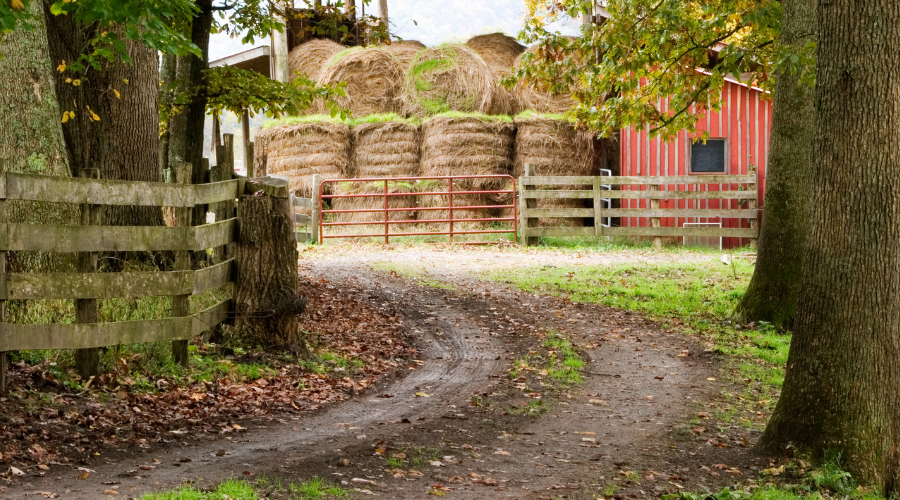While the United States is often celebrated for its major cities and the metropolitan culture they offer, the heart and soul of America can be found in its rural towns and the festivals that bring them to vibrant life. Steeped in tradition, these celebrations are not just gatherings; they are moments in time where the essence of community, history, and heritage is preserved and proudly displayed. For anyone looking to experience the true spirit of America, attending a festival in a rural setting is an absolute must.
In this comprehensive guide, we’ll take you on a tour through the top 10 rural festivals located across the United States. You’ll discover the rich tapestry of rural festivals—from the toasty apple cider events in New England to grand cowboy gatherings in the Wild West, and everything in between. These festivals are not only colorful spectacles but also serve as crucial venues for the preservation and promotion of regional cultures.
1. Blue Ridge Apple Festival – Hendersonville, North Carolina
Dates: First Saturday in October
Nestled in the picturesque Blue Ridge Mountains, the Blue Ridge Apple Festival in Hendersonville is a crisp celebration of the autumn harvest. The sweet scent of apples fills the air as revelers enjoy apple-themed contests, crisp apple cider, and a pie-eating competition that’s as American as, well…apple pie. This festival is a vital part of the local apple-growing industry and offers insight into the process, from tree to table.
2. Alpenfest – Gaylord, Michigan
Dates: September
Celebrate the strong Swiss and German heritage that runs deep in the state of Michigan at Alpenfest. For a week in September, Gaylord is transformed into a Bavarian village, complete with folk music and traditional dance. This family-friendly event includes a Grand Parade, a 5k run, and children’s Swiss costume awards, highlighting the rich cultural contribution of settlers to this region.
3. Kutztown Folk Festival – Kutztown, Pennsylvania
Dates: End of June to beginning of July
This is a haven for heritage enthusiasts. The Kutztown Folk Festival is a showcase of Pennsylvania Dutch culture, featuring craftsmen, hex sign painting, and the famous ‘Hoedown Cooking Show’ where the audience learns about Amish and Mennonite cooking. The festival is an immersive experience where visitors can step back in time to a period before industrialization.
4. Strawberry Festival – Buckhannon, West Virginia
Dates: May
In the rolling hills of West Virginia, the Strawberry Festival is a sweet celebration of the short but delightful strawberry season. Visitors can enjoy a parade, music, and the crowning of the Strawberry Festival Queen. The event serves as both a community fundraiser and a chance for local artisans to sell their crafts.
5. Mississippi State Fair – Jackson, Mississippi
Dates: October
The Mississippi State Fair is a grand display of agricultural achievement. Livestock contests, a Miss Mississippi competition, and an abundance of fairground rides are just the beginning. The fair also prides itself on showcasing local agriculture, with a focus on catfish, which remains a staple of the Mississippi economy.
6. National Lentil Festival – Pullman, Washington
Dates: August
An unusual but endearing event, the National Lentil Festival is a quirky celebration of the mighty lentil, a pulse crop grown in the region. The festival offers a variety of events including a cook-off, the World’s Largest Bowl of Lentil Chili, and the legendary ‘Tase T. Lentil’ 5k race. It’s an eco-friendly and often overlooked facet of local agriculture.
7. Covered Bridge Festival – Mansfield, Indiana
Dates: October
The Covered Bridge Festival is a step back into the 1850s, with historical reenactments, a ‘blind mans’ bluff walking tour, and delicious foods served around the old trading post. What makes this event particularly special is the set of five nearby covered bridges dating back to the 1800s, one of the last places in the state where these bridges can be seen and enjoyed.
8. Maple Syrup Festival – Medora, Indiana
Dates: First two weekends in March
This Indiana tradition celebrates the transition from winter to spring. Families can witness the age-old process of creating maple syrup, from collecting sap to boiling it down into sweet syrup. The festival offers artery-clogging delights, such as homemade pancakes and sausage to top off the day.
9. Chokecherry Festival – Lewiston, Idaho
Dates: Second Saturday in September
This festival is as unique as its name. Lewiston’s Chokecherry Festival highlights the local wild fruit, which grows abundantly in the local valleys. Attendees can enjoy arts and crafts, games, and delicious chokecherry-themed treats. The festival raises awareness of local ecology and is an excellent opportunity to try something truly local and uncommon.
10. Rattlesnake Roundup – Sweetwater, Texas
Dates: March
For the bold and the curious, the Rattlesnake Roundup offers a taste of Texas with a side of thrill. Hunting rattlesnakes is an age-old tradition in Texas, and this festival not only educates on the safety of rattlesnake habitat but also features a parade, cook-off, and snake handler exhibits.
Rural festivals are more than just fun—they’re a critical part of the rural economy, supporting local businesses, artisans, and farmers. In the rich tapestry of American culture, these events are the threads that bind communities together, providing unique experiences for locals and visitors alike. Support local economies, experience the joy of shared heritage, and revel in the cozy warmth of rural life at these must-visit festivals.
The Timeless Traditions of Rural Festivals
America’s rural festivals are like time capsules, preserving bygone eras, old customs, and regional pride. From apple-picking to syrup-making, there’s a sense of groundedness and tradition that is increasingly rare in our fast-paced, technology-driven world. These traditions are not only educational for the next generation but also unifying for present ones.
Rural festivals also play an essential role in the local economy, often being the most significant source of income for many businesses in these small towns. The dollars spent at the festivals go a long way, supporting farmers, craftsmen, and community projects that otherwise struggle to compete in larger markets. Festivals like these are the lifeblood of their communities and help them thrive.
Planning for Your Rural Fest Adventure
If you’re planning to attend a rural festival for the first time, there are some key things to keep in mind to ensure that you make the most of your experience. Here are a few tips:
- Check the Dates: Make sure you know when the festival takes place. Many rural festivals are seasonal and may not necessarily align with traditional vacation times.
- Pack Accordingly: Rural areas can have unpredictable weather, so be sure to dress in layers and pack for both rain and shine. Don’t forget comfortable shoes for walking around festival grounds.
- Transportation: Look into the local area’s transportation options. Many rural festivals provide shuttle services or have preferred parking lots.
- Accommodation: Book accommodation well in advance. Rural areas may have limited lodging options, and they can fill up quickly once festival dates are announced.
- Be Open-Minded: Rural festivals may expose you to new experiences and perhaps some unconventional customs. Keep an open mind and be respectful of local traditions.
By venturing out to rural American festivals, you are not only in for a good time but also contributing to the preservation of local culture and economic prosperity. Take part in these unique traditions, savor the local specialties, and bask in the hospitality of the rural American community. After all, the heart of America lies not in the monuments of steel and glass, but in the traditions and values of its people.
Share Your Rural Festival Stories
Have you attended a rural festival in the United States and want to share your experiences? We’d love to hear about it. Spread the word and encourage others to support and experience the charm of rural festivities.
Rural festivals are an important part of our national identity, serving as integral snapshots of local American life. By attending and participating, we not only celebrate the unique aspects of an individual community but also reinforce the ties that bind us as a nation. Whether you’re enjoying the music, crafts, or cuisine, you’re an active part of a story that has been unfolding in the heartland for generations.
Local Events: The Best Kept Secrets
Festivals aren’t just entertainment; they’re a community’s way of coming together, sharing stories, and creating memories. Not all of these events will make national news, but they are the soul of our nation. The next time you’re thinking about where to take your next vacation or plan a weekend getaway, look into a rural festival. You may just find yourself in the middle of an experience that’s uniquely American and entirely unforgettable.
Festival culture connects us to a time when life was slower, and relationships were paramount. In a rural setting, these bonds are magnified and celebrated in a way that’s deeply touching. For our fellow citizens who rarely have the light shed upon their daily lives, this is an opportunity for recognition and appreciation. By attending rural festivals, you not only expand your own horizons but support the tapestry of American life. Remember, it’s not just about the sights and sounds—it’s about the people and the stories they have to tell.
Rural America provides a wealth of opportunities to connect with history, nature, and our shared heritage. This article has only scratched the surface of the rural festival scene, but there are hundreds more events waiting to be discovered. These festivals are the backbone of the local community and a treasure trove of unique experiences waiting for you to explore. Start your adventure today and share the beauty of rural America with future generations.

